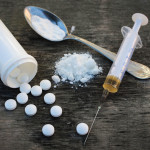The effectiveness of needle exchange programs worldwide in reducing HIV rates has been demonstrated, but politics repeatedly gets in the way, The New York Times Magazine reports.
According to the article, the evidence in support of needle exchange programs has only grown. Studies have shown that they do not lead to higher crime rates or more drug use. A study in 2003 reviewed 99 cities worldwide. Those with needle exchange had a 19 percent drop per year in HIV rates. Those without it had an 8 percent increase per year.
Despite the evidence, politics consistently is the cause for lack of implementation. This is because politicians fear that endorsing needle exchange is a tacit approval of drug use. Citing the United States as an example, the article points out the long road from a federal funding ban in 1988 to the current debate in Congress to lift the ban.
Australia, New Zealand and some countries in Western Europe have implemented needle exchange. Iran and China have started limited programs. However, most drug users around the world do not have access to such programs.
The article cites Russia in particular as seriously in need of widespread needle exchange. The country’s HIV/AIDS epidemic is fueled by drug use, yet needle exchange programs are scarce.
Advertisement
Advertisement
Advertisement






Comments
Comments